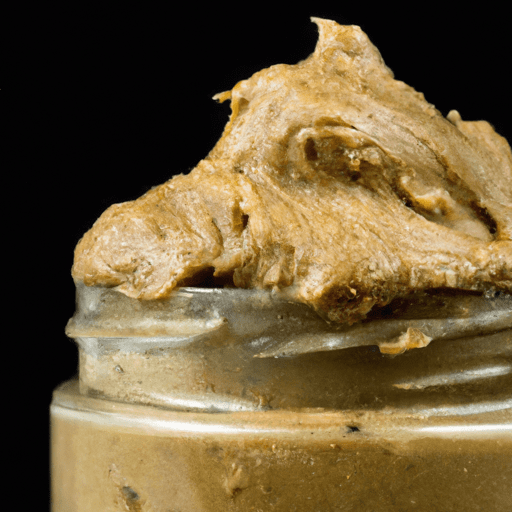Nut Butters: A Delicious and Nutritious Addition to Your Kitchen
If you’re a food enthusiast like me, you’ll agree that nuts are nature’s little powerhouses. They’re not only loaded with nutrients but also offer a delightful taste. And when transformed into nut butters, they become even more versatile and mouth-watering. In this blog post, we’ll dive deep into the world of nut butters, exploring their taste, common uses in cooking, nutritional value, and fascinating history. So let’s grab a spoon and get started!
The Richness of Taste:
Nut butters boast a richness and depth of flavor that can elevate any dish or snack. Whether you’re a fan of the creamy and slightly sweet taste of almond butter, the robust and earthy flavor of peanut butter, or the indulgent and decadent notes of cashew butter, there’s a nut butter to satisfy every palate. Their velvety texture adds a luxurious touch to toast, smoothies, desserts, and even savory dishes.
Versatile Uses in Cooking:
Nut butters are incredibly versatile in the kitchen and can be used in countless ways. They act as a flavor enhancer, a thickener, and a binding agent, making them an essential ingredient in both sweet and savory recipes. From classic peanut butter cookies and almond butter brownies to Thai-inspired peanut sauces and cashew butter dressings, the possibilities are endless. You can also spread nut butters on your morning toast, swirl them into yogurt or oatmeal, or simply enjoy them straight from the jar for a quick energy boost.
A Nutritional Powerhouse:
Not only are nut butters delicious, but they also pack a nutritional punch. They are an excellent source of plant-based protein, healthy fats, vitamins, minerals, and dietary fiber. Additionally, they contain a range of antioxidants that are beneficial for overall health and well-being. The exact nutritional profile may vary depending on the nut variety, but all nut butters offer a host of essential nutrients. However, it’s important to enjoy them in moderation, as they are calorie-dense.
A Fascinating Nutty History:
Did you know that nut butters have been enjoyed for centuries? The ancient Aztecs and Incas were among the first to grind peanuts into a paste-like substance, similar to contemporary peanut butter. However, the credit for popularizing peanut butter goes to Dr. John Harvey Kellogg, who patented a process in the late 19th century. Interestingly, peanut butter became an integral part of American soldiers’ rations during World War II, boosting its popularity and accessibility.
Fun Facts:
- Almond butter was a delicacy enjoyed by Egyptian pharaohs.
- Peanut butter is consumed in 94% of American households.
- Cashew butter is naturally cholesterol-free.
- Nut butters can be made at home by blending roasted nuts with a food processor until smooth and creamy.
Now that you’ve explored the world of nut butters, it’s time to embark on your culinary adventure. Try experimenting with different nut butter varieties and explore the incredible flavors and textures they bring to your meals. Your taste buds and body will thank you!
So, grab that jar of nut butter, unleash your creativity, and delve into the deliciousness!
Nut Butters
Origin: Nut butters have been consumed for centuries and can be traced back to ancient civilizations. The most common types of nut butters, such as almond, peanut, and cashew, have origins in different parts of the world, but the exact origin of nut butters is difficult to pinpoint.
Common Uses: Nut butters are versatile ingredients used in various culinary applications. They are commonly used as spreads on bread, toast, or crackers. Nut butters are also incorporated into sweet and savory recipes, desserts, sauces, smoothies, and salad dressings. They can also be a key ingredient in energy bars and other baked goods.
Nutritional Benefits: Nut butters are nutrient-dense foods that provide several health benefits. They are a good source of healthy fats, including monounsaturated and polyunsaturated fats, which can help support heart health. Nut butters also contain important vitamins and minerals such as vitamin E, magnesium, potassium, and calcium. They are also a good source of plant-based protein and dietary fiber, which can contribute to satiety and promote digestive health.
Unique Properties: Each type of nut butter has its own unique properties. For example, peanut butter is often thick and creamy, while almond butter tends to be smoother and has a slightly sweet taste. Cashew butter has a rich and buttery flavor. Some nut butters may separate over time, forming a layer of oil on top. This is a natural process, and stirring the nut butter will help homogenize it.
Historical Significance: Nut butters have a long history in human food consumption. Ancient civilizations such as the Aztecs and the Mayans are known to have used ground nuts as a food source. The earliest known recipe for nut butter, specifically peanut butter, dates back to the 15th century in South America. However, peanut butter as we know it today was popularized in the United States during the late 19th and early 20th centuries.
Please note that while nut butters can be a part of a healthy diet, it is important to consume them in moderation as they are calorie-dense foods.




Use the share button below if you liked it.
It makes me smile, when I see it.